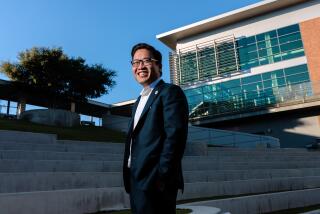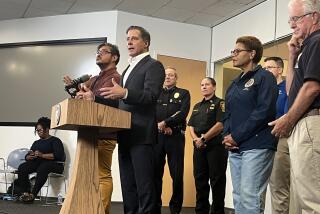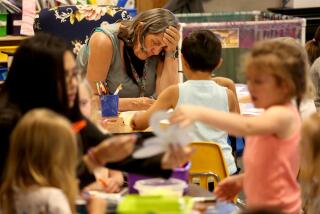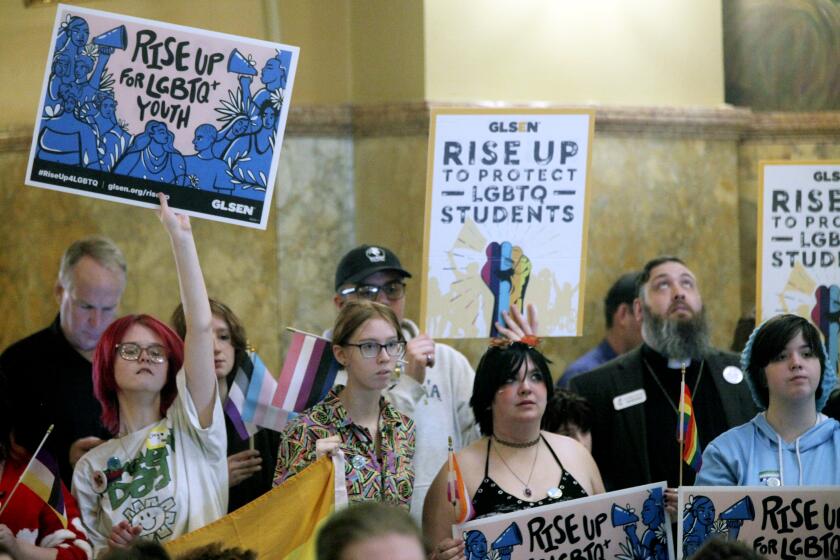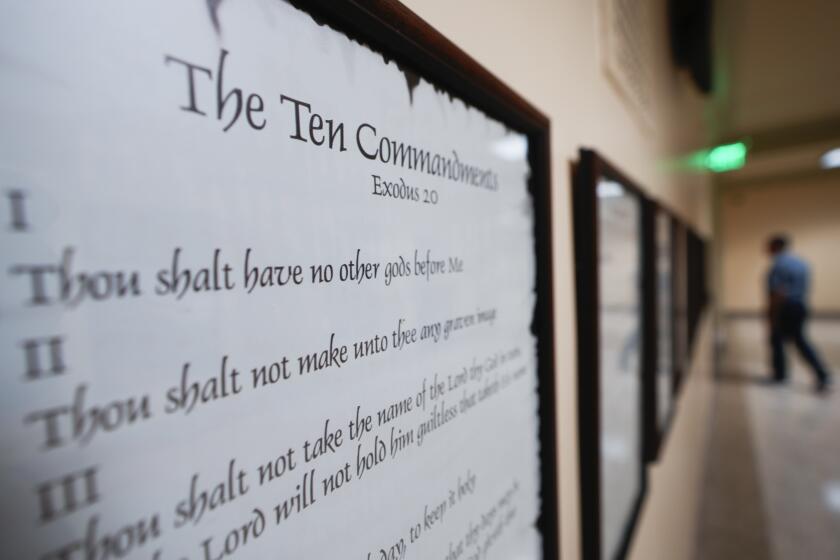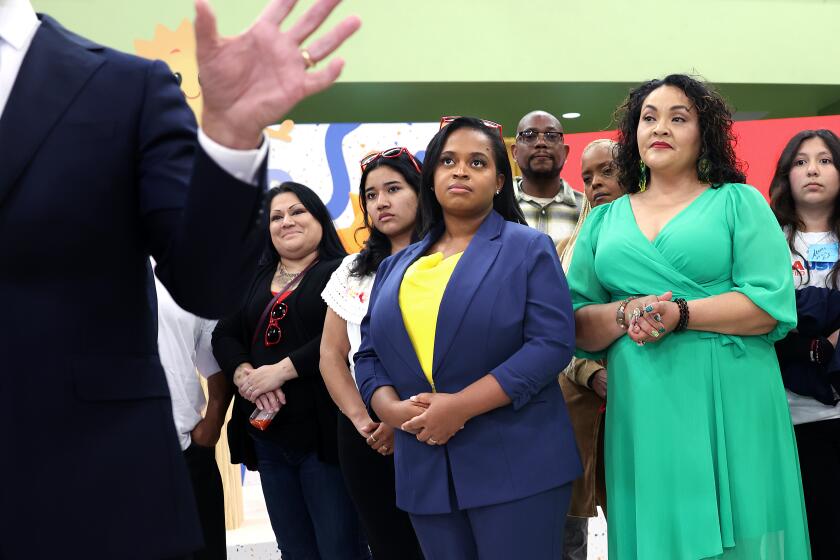U.S. Education secretary calls for teacher shortage solutions, more mental health services
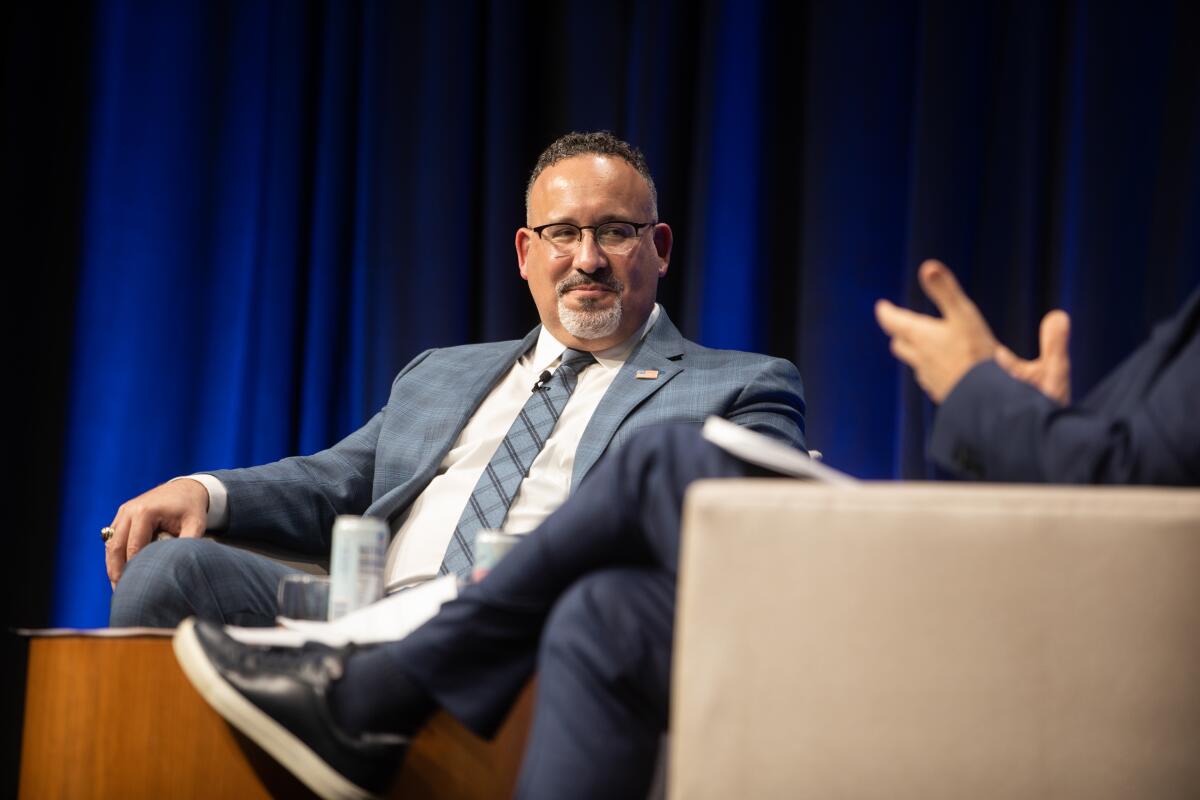
U.S. Secretary of Education Miguel Cardona said schools need to use the pandemic’s challenges to change dramatically to better help students by providing more services aimed at mental health needs, college and career programs, tutoring and after-school and summer programs.
He has said previously that every student should have access to a mental health professional, every student should participate in an extracurricular activity, and schools should provide 30 minutes of tutoring, three days a week, to struggling students.
“If we go back to how our schools were in March 2020, we’ve failed our kids,” he said during a Monday conference in San Diego.
Cardona visited San Diego to speak during a “fireside chat” at the Carnegie Foundation’s Summit on Improvement in Education conference. About 1,300 educators and others packed the event hall to hear him speak.
Cardona, the former education commissioner of Connecticut who started out as a teacher, has led the country’s education department for just over a year. As secretary, he lacks policy-making power over schools, which are mostly governed by state and school district decisions. But Cardona serves as the Biden administration’s spokesperson on education issues and helps set the national conversation on schools.
Cardona’s comments come at a time when school staff are stressed and burned out from enduring two years of the pandemic. School staff and administrators have had to uphold COVID-19 safety measures amid backlash from some families, keep schools running through the Omicron surge, and face pressures from families over political issues such as teaching about racial issues.
Teacher shortages have long been an issue for public K-12 schools, but the problem has been exacerbated and highlighted because of the pandemic.
A National Education Assn. survey published in January found that more than half of members surveyed are thinking about leaving the profession sooner than planned. Two-thirds of teachers surveyed reported burnout as a very serious issue.
Cardona called for schools to use federal pandemic aid funds to deploy solutions to the nationwide teacher shortage. He emphasized teacher residency programs, where school districts form partnerships with colleges so that teachers-in-training can work in schools as substitutes, special education aides and tutors.
Cardona called for increasing teacher pay, scaling up teacher residency programs and paying teachers-in-training for working in schools.
“For far too long, this notion of student teaching without any salary has kept people out of the profession,” Cardona said.
Cardona also called on states to establish teaching as a registered apprenticeship, provide grant funding for teacher residency programs, and establish loan forgiveness and scholarship programs for teachers.
More to Read
Start your day right
Sign up for Essential California for news, features and recommendations from the L.A. Times and beyond in your inbox six days a week.
You may occasionally receive promotional content from the Los Angeles Times.
